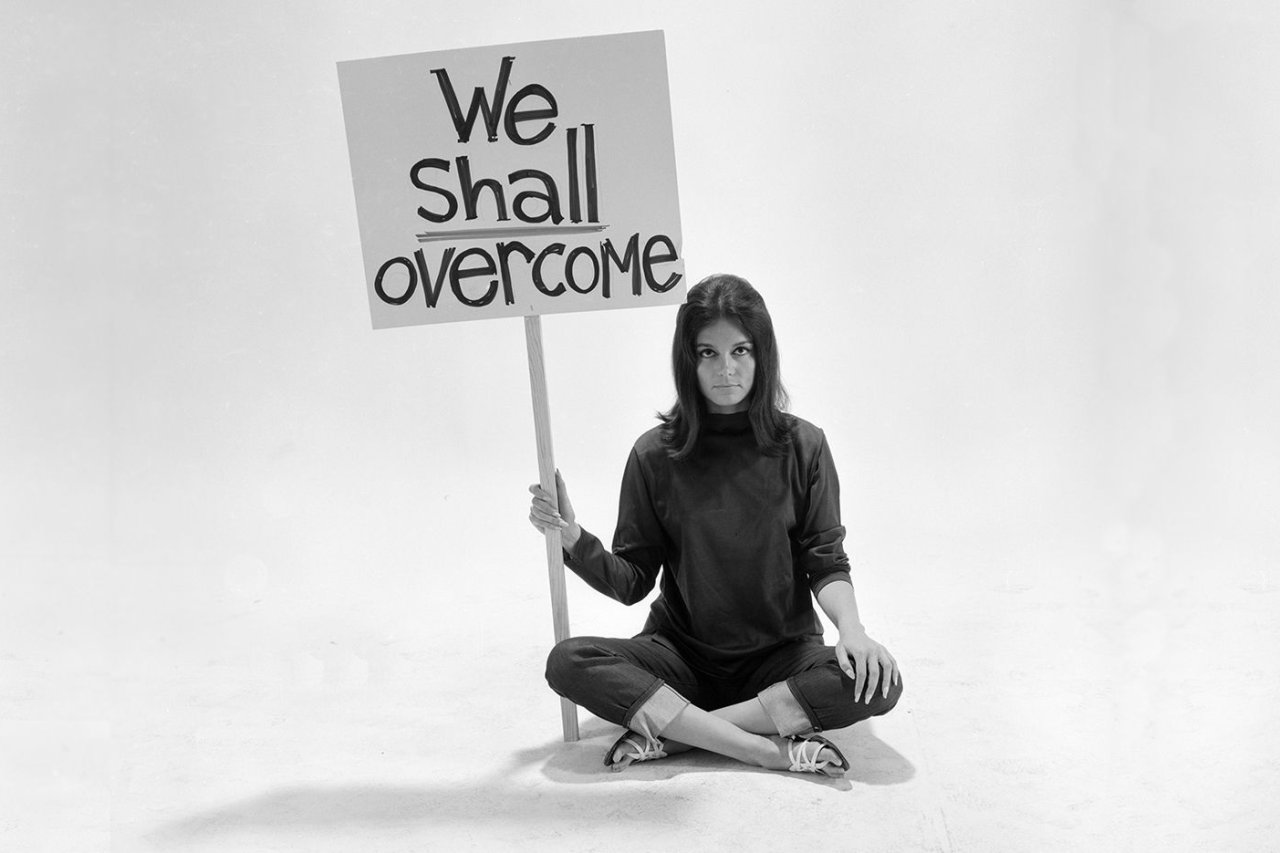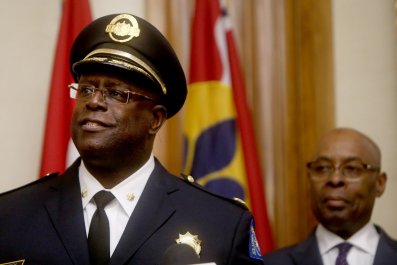Gloria Steinem experienced her first round of fame in 1963, when she wrote a groundbreaking exposé on becoming a Playboy Bunny for Show magazine. In 1972, she co-founded Ms. magazine, the inaugural cover revealing a housewife "goddess" with eight arms—each holding a household item—a baby in her belly and tears streaming down her cheeks. She went on to found the Women's Action Alliance, the National Women's Political Caucus and the Women's Media Center. Over 45 years after her efforts for women began, the indefatigable 83-year-old Steinem remains one of feminism's most relevant, eloquent and persuasive voices.
In advance of International Women's Day (March 8), Newsweek spoke to Steinem about the rise of what is, in many ways, the culmination of her life's work, the #MeToo movement, and how to turn its remarkable momentum into concrete change.
What's your take on #MeToo?
I see a level of activism that I have never, ever seen in my life. Wherever I go, I see people who weren't voting before and are now running for office, or who didn't know who their [congressional] representative was and are now lining up outside their offices to lobby them. I don't mean to diminish the danger of having a deranged person as president, but [Donald Trump] has awakened a lot of people who simply would have been going about their lives without paying attention to the electoral system or the government.
Can you elaborate on how Trump changed things?
What once was an invisible experience without a phrase, sexual harassment, then was a phrase without a law, and then a law without a national consciousness, is now available truth telling, with some possibility of being believed for the first time. We're beginning to see the scope of a system of male dominance that's intertwined with class and race. We're beginning to see how much sex has been distorted by power.
Have all the sexual assault and harassment allegations made you rethink your own past experiences with men?
I'm realizing that there was a reason why I never worked in an office before Ms. magazine. I always wrote my articles at home, then delivered them to the Sunday New York Times. When I delivered an article every once in a while, the editor would give me a choice: Do you want to go to a hotel room in the afternoon or mail my letters?
I remember, when I was 30, sitting on a couch in an office with a [male] acquaintance. We were waiting for a third person, a man; it was his office. The acquaintance reached across and took hold of my wrist to kiss me. I bit him on the cheek, drawing blood. I didn't think about it! I'm not suggesting this is a virtue on my part, but because of the way I grew up, I still had my instincts. They hadn't been cultured out of me.
He was actually quite nice about it, ever after saying, "Look, I have a little scar." But it made me realize that in the absence of this suffocating cultural message to be pleasing, to be obedient, to not make trouble, we have instincts like my cat. My cat will not put up with anything because she has never had that instinct oppressed out of her.
How can we instill this kind of confidence in young people?
It's never too late! You know how kids all over the world say, "It's not fair!" and "You're not the boss of me!" I think that's very hopeful.… We are most likely to encourage that in girls and boys by listening to them. What are they interested in? What do they like to do? That's how we know they're worth listening to. Encourage them to do it on their own. Not to help too much. Provide a community of support. In some ways, girls become dependent because they are not allowed to be independent. It's partly just saying, "You like to do that? Do it!"
What have you learned that's changed your own behavior?
What's creative about being an organizer is looking at each situation and figuring out the possibilities. Sometimes you make a bridge calling out a person's experience, or an example of a bias they have suffered, due to religion or something parallel. At a minimum you can model the behavior you want to strengthen by not shouting and yelling. However, I do think that we, as women trying to please, need to be aware of the problem sometimes. When presented with 500 people ready to do something, and 100 people then say no, [women] will try and persuade those 100 rather than move forward with the 400. Sometimes I can hear myself saying, "You don't agree with me? Let me explain it to you again." Instead say, "Thank you very much," and move on to something positive.
What's your best advice for young women?
Don't listen to me; listen to yourself. What do you love to do so much that you forget what time it is when you're doing it? Find support for that. Find other people who will support you or know how to do it better and you can learn from them. Don't worry about the shoulds. Get up in the morning and do whatever you can.
My best political advice for a long time came from the guy who collected the garbage, a political leader in Queens. He knew everything. He would tell me what the problems were with city policy, which candidate he thought was gonna win. If we follow simple lines of balance—that is, if we're someplace we have more power than other people, if we remember to listen as much as we talk, if we have less power, we remember to talk as much as we listen, which can be just as difficult. These are simple principles of balance, of democracy.

















